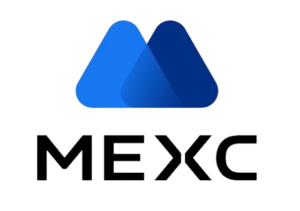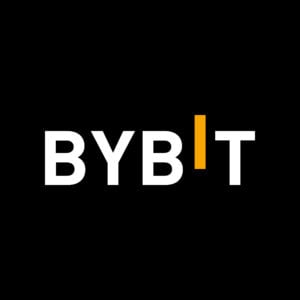Crypto trading is already popular, with millions of people buying and selling coins every day. Finding the lowest fees crypto exchange can make a big difference for anyone trading cryptocurrency.
When fees are high, they eat into your profits and make every trade feel expensive. But with the right exchange, you can trade at lower costs and keep more of your money. In this guide, we’ll review the best crypto exchange with lowest fees and how low crypto exchange fees can give you an edge in crypto trading.
Key Takeaways:
- The best low-fee crypto exchanges are MEXC, Binance, OKX, Bitget, KuCoin, Bybit, and Coinbase, offering discounts for high trading volume or native token use.
- The different types of crypto fees include trading fees (maker and taker), deposit fees for adding funds, withdrawal fees, spreads, inactivity fees, and transfer fees between wallets or markets.
- You can reduce crypto trading fees by using low-fee platforms, paying fees with exchange tokens, choosing maker orders, and trading in larger volumes to earn discounts.
Top Crypto Exchange With Lowest Fees – Comparison Table
| Exchange | Maker Fee | Taker Fee | Crypto Deposit Fee | Exchange Token Discount | Trading Volume Discount |
| MEXC | 0% | 0.02% | Free | 10% (MX Token) | Yes |
| OKX | 0.08% | 0.1% | Free | Discounts with OKB Token (Tiered) | Yes |
| Binance | 0.1% | 0.1% | Free | 25% (BNB Token) | Yes |
| Bitget | 0.1% | 0.1% | Free | 20% (BGB Token) | Yes |
| KuCoin | 0.1% | 0.1% | Free | 20% (KCS Token) | Yes |
| Bybit | 0.1% | 0.1% | Free | No | Yes |
| Coinbase | 0.4% | 0.6% | Free | No | Yes |
Cheapest Crypto Exchanges Detailed Review
1. MEXC: Zero-fee crypto exchange
MEXC is one of the best low-fee crypto exchanges. The platform offers 0% fees for makers and 0.02% takers in spot trading, which means you can trade without fees. This applies to all spot trading pairs, making it super beginner-friendly and cost-effective.
For futures trading, MEXC keeps the costs low too. Maker fees are 0%, and taker fees are just 0.02%. Plus, if you use MEXC’s native token (MX) for fee deductions, you get an additional 10% discount on taker fees. These low rates are ideal for frequent traders or those dealing with high volumes, as savings can add up quickly.
MEXC is not just about low fees but boasts over 2,700 trading pairs. It gives you access to various crypto assets, from popular ones like Bitcoin and Ethereum to niche altcoins. The platform is known for fast listings of new coins, so it’s a favorite for users chasing early investment opportunities. The exchange regularly runs promotions, such as zero-fee trading events or rewards for MX holders. Users can also enjoy weekly airdrops and other benefits, making trading even more profitable. It is also known as the best crypto exchange for no-KYC trading.
| Spot Fees (Maker/Taker) | Perpetual Futures Fees (Maker/Taker) | Bitcoin Deposit Fees | Bitcoin Withdrawal Fees |
| 0%/0.02% | 0%/0.02% | Free | 0.0001 BTC |

2. OKX: Low fee exchange for advanced traders

OKX is another cheap cryptocurrency exchange, offering low trading fees and a range of services. It is known for being user-friendly and advanced. It supports millions of users in over 100 countries and provides access to 350+ crypto tokens and trading pairs.
OKX charges very competitive trading fees. For spot trading, the maker fee starts at 0.08%, and the taker fee is 0.1%. These fees can be reduced further based on your trading volume or if you hold OKB, the platform’s native token. For futures, maker fees start as low as 0.02%, and taker fees are 0.05%. OKX uses a tier fee system for discounts, where traders can benefit based on their 30-day trading volume or OKB holdings. VIP users can even enjoy maker fees as low as -0.001%, meaning they get rebates.
The platform supports advanced trading tools like spot, margin trading, perpetual swaps, and options trading. It operates worldwide, except in regions with strict crypto regulations like the U.S. OKX also offers tools like trading bots and charts to enhance user experience.
| Spot Fees (Maker/Taker) | Perpetual Futures Fees (Maker/Taker) | Bitcoin Deposit Fees | Bitcoin Withdrawal Fees |
| 0.08%/0.1% | 0.02%/0.05% | Free | 0.00003 BTC |

3. Binance: Lowest fees for high-volume traders

Binance is one of the lowest fees crypto exchanges for high-volume traders. They started in 2017 and have grown to be one of the top platforms worldwide. The main reason people love Binance is because of its super-low trading fees. They charge just 0.1% per trade for spot trading. If you use Binance’s own coin, BNB, to pay your fees, you get a discount, making it even cheaper at 0.075%.
Another good thing is there are no fees for deposits when you’re adding crypto to your Binance wallet. But if you’re withdrawing, the fee depends on the blockchain you’re using, which changes based on network traffic. Binance also offers advanced options like futures trading with 125x leverage. Here, fees are even lower, starting at 0.02% for makers and 0.05% for takers, which is super competitive compared to other platforms.
For U.S. users, Binance.US is available with zero-fee Bitcoin trading on selected pairs, called Tier 0 pairs. This is great for people who trade BTC often. For other trading pairs, fees are some of the lowest in the U.S. market, starting at 0.4% for spot trading. You can also get a 5% discount on fees if you use Binance’s BNB token to pay.
Binance.US has a tiered fee structure, which means your fees can drop further if you trade more over 30 days. High-volume traders get discounts, making it even cheaper for active users. Besides this, staking rewards are available for supported coins, but a service fee of up to 35% may apply to those earnings.
| Spot Fees (Maker/Taker) | Perpetual Futures Fees (Maker/Taker) | Binance.US Fees (Spot Market) | Bitcoin Deposit Fees | Bitcoin Withdrawal Fees |
| 0.1%/0.1% | 0.02%/0.05% | 0.4%/0.6% | Free | 0.00015 BTC |

4. Bitget: Cheapest Bitcoin trading platform

Bitget is the best low-fee crypto trading platform, especially for altcoin traders. For spot trading, Bitget charges a flat fee of 0.1% for both makers and takers, which is already lower than many other exchanges.
But here’s the best part – if you use their native token, BGB, to pay for fees, you get a 20% discount, bringing the fee down to just 0.08%. This is a smart way to save on fees while holding their token. For high-volume traders, there’s even a VIP program where fees can go as low as 0.02% for makers and 0.032% for takers.
If you’re into futures trading, Bitget charges 0.02% for makers and 0.06% for takers, which is among the cheapest in the market. This makes it a go-to platform for anyone trading derivatives. On top of that, the platform offers tools like one-click copy trading to help beginners follow expert traders.
Deposits on Bitget are completely free, which is always a bonus. Withdrawal fees depend on the cryptocurrency but are adjusted regularly based on network costs. Another unique feature is their “zero fee” promotions for certain types of trades, like P2P transactions, making it even more cost-efficient.
| Spot Fees (Maker/Taker) | Perpetual Futures Fees (Maker/Taker) | Bitcoin Deposit Fees | Bitcoin Withdrawal Fees |
| 0.1%/0.1% | 0.02%/0.06% | Free | 0.00008 BTC |

5. KuCoin: Best for trading altcoins with low fees

KuCoin is a top choice among low-fee exchanges to trade crypto. It charges only 0.1% for spot trading, which is one of the cheapest out there. Even better, if you use KuCoin’s token, KCS, to pay the fees, you get a 20% discount. This brings the fee down to just 0.08% per trade.
If you like futures trading, KuCoin’s fees are still amazing. It charges 0.02% for maker trades and 0.06% for taker trades. It’s perfect if you want to try out advanced trading strategies without spending much money. Plus, they have a VIP program. The more you trade or if you hold enough KCS tokens, you get even bigger discounts. At the highest VIP level, fees can go down to zero, and sometimes KuCoin even pays you a rebate to trade.
Another best thing is KuCoin doesn’t charge you any deposit fees. You can add money to your account for free. Withdrawal fees depend on the coin you’re taking out, but they’re usually low and based on network costs, not extra charges from KuCoin.
The exchange also supports over 700 cryptocurrencies, so there’s a good chance you’ll find the coin you’re looking for. Plus, they sometimes run promotions like zero fees on selected trading pairs.
| Spot Fees (Maker/Taker) | Perpetual Futures Fees (Maker/Taker) | Bitcoin Deposit Fees | Bitcoin Withdrawal Fees |
| 0.1%/0.1% | 0.02%/0.06% | Free | 0.00045 BTC |

6. Bybit: Low fees leverage trading platform

Bybit is one of the best crypto exchanges with low fees for trading. For Spot Trading, both maker and taker fees are just 0.1%. This rate is pretty low compared to many other exchanges. But if you trade more, your fees get even cheaper. For example, if you trade $10 million or more in a month, the taker fee drops to 0.075%, and the maker fee goes down to 0.0625%.
When it comes to Derivatives Trading, Bybit really shines. The taker fee is 0.055%, and the maker fee is only 0.02%. Plus, if you’re a market maker (someone providing liquidity), you pay way less. This makes Bybit ideal for pro traders who love futures and options trading. There are no fees for deposits, but for withdrawals, a small fixed fee applies. For example, withdrawing Bitcoin costs 0.0005 BTC, which is a standard rate.
Bybit also has some fee discounts and even rebates for high-volume traders or VIPs. If you’re a VIP trader, your fees can drop significantly, making it almost free to trade. There’s even a negative maker fee rebate for specific trades, where Bybit pays you instead of charging you.
| Spot Fees (Maker/Taker) | Perpetual Futures Fees (Maker/Taker) | Bitcoin Deposit Fees | Bitcoin Withdrawal Fees |
| 0.1%/0.1% | 0.02%/0.055% | Free | 0.0005 BTC |

7. Coinbase: Best for low fiat deposit fees

Coinbase is a well-known crypto exchange, especially for users in the U.S., but it’s not the cheapest when compared to global platforms like Binance or OKX. However, it offers excellent fiat deposit and withdrawal options for U.S. users, which can make it worth considering despite slightly higher fees.
Coinbase charges no fees for ACH deposits or withdrawals, making it a good option if you’re moving money from a U.S. bank. If you need faster processing through wire transfers, they charge $10 for deposits and $25 for withdrawals in USD. For European users, SEPA deposits cost just €0.15, and withdrawals are free. UK users benefit from free deposits through SWIFT but face a small £1 fee for withdrawals.
When trading, Coinbase has a tiered maker-taker fee system. For new users with less than $10,000 in monthly trading volume, taker fees are 0.6%, and maker fees are 0.4%. These fees get cheaper as your volume increases, dropping to as low as 0% for makers and 0.05% for takers if you trade over $400 million monthly.
For withdrawals of cryptocurrencies, Coinbase applies network fees depending on the congestion level of the blockchain. They also include efficiency measures like batching transactions to keep costs reasonable.
| Spot Fees (Maker/Taker) | Fiat Deposit Fees | Crypto Deposit Fees | Crypto Withdrawal Fees |
| 0.4%/0.6% |
|
Free | Variable network fees |
Types of Fees to Pay on Crypto Exchanges
Trading Fees
When you trade on a crypto exchange, they charge “trading fees”. These fees are usually split into two parts: maker fees and taker fees.
- A maker fee is when you create an order that adds liquidity to the market, like setting a limit price for buying or selling. It’s called a “maker” because you make the market active.
- A taker fee happens when you take an existing order from the market.
For example, if you buy Bitcoin at the exact price someone is selling, you’re a taker. Maker fees are often a bit lower because you’re helping the exchange by adding more trades.
Most exchanges charge a percentage of your trade as a fee. For example, Binance charges a flat 0.1% for both maker and taker trades, while Coinbase Advanced starts at 0.4% but can go lower if you trade big amounts.
There are also fees for trading fiat money (like USD or EUR) for crypto, called fiat-to-crypto fees. If you already own crypto and trade it for another one, that’s a crypto-to-crypto fee. Some platforms like Kraken charge less for crypto-to-crypto trades.
Deposit Fees
Deposit fees are when you send money or crypto to the exchange to start trading. Some platforms let you deposit fiat money for free through bank transfers, but if you use a credit card, they might charge you around 3%-5%. For example, Coinbase charges 3.99% for card deposits, which can be really high.
For crypto deposits, most exchanges don’t charge anything. So, if you already have crypto in a wallet, it’s better to send it directly to avoid fees.
Withdrawal Fees
Withdrawing is taking your money or crypto out of the exchange. If you’re withdrawing fiat money, there might be flat fees, or it could depend on the method you use.
There’s usually a fee for crypto withdrawals based on the blockchain’s network cost. If you withdraw Bitcoin, it might cost you an average of 0.0005 BTC. Some cryptocurrency exchanges have fixed withdrawal fees, while others let you pay more to make the transaction faster.
Other Additional Fees
There are some hidden fees too, like spreads, inactivity fees, or transfer fees.
- A spread is the difference between the buying and selling price of a coin. Exchanges like Robinhood make money from spreads instead of showing a trading fee, so you might think it’s free, but it’s not.
- An inactivity fee is charged if you don’t use your account for a long time. Not all exchanges have this, but it’s good to check.
- Transfer fees happen when you move funds from one wallet to another or a spot market to a futures market.
Impact of Trading Fees
Trading fees can make a big difference when you buy and sell crypto. Even small fees can add up over time, especially if you trade a lot. Let me break it down in simple words so you can see how much trading fees matter.
Imagine you buy Bitcoin worth $1,000 on Binance. At 0.1%, you pay just $1 in fees. Sounds okay, right? But if you trade $1,000 ten times a week, that’s $10 a week and around $40 a month just for fees.
Now compare that to Coinbase Advanced’s 0.6% fee. For the same $1,000 trade, you pay $6. If you trade 10 times, that’s $60 a week, which is way more expensive. This shows why low trading fees matter, especially for frequent traders.
Again, high trading fees also stop some people from trading small amounts. If you want to buy just $200 worth of crypto on Coinbase Simple with a 1.49% fee, you lose $2.98. That might not seem worth it to some people. Low fees make trading more affordable, even for small investors.
How To Reduce Crypto Trading Fees?
- Pick Crypto Exchanges with Low Fees: Not all exchanges charge the same. For example, Binance has low fees at 0.1%, while MEXC has zero fees. Choosing a platform with lower fees will save you a lot of money in the long run. Always compare fees before you pick an exchange.
- Use Maker Orders Instead of Taker Orders: If you’re a maker (adding orders to the market), you usually pay lower fees than a taker (buying or selling instantly).
- Trade in Bigger Amounts: Many exchanges lower your trading fees if you are a high-volume trader. This might not work if you’re new, but it’s something to think about as you grow.
- Pay Fees with Exchange Tokens: Some platforms have their own tokens that give you fee discounts. On Binance, if you pay fees with their BNB token, you get a 25% discount.
- Avoid Using Credit Cards: Depositing money with a credit card can cost 3%-5% in fees on many platforms like Coinbase. Instead, use bank transfers or crypto deposits, which are often free or much cheaper. This small change can save you big.
- Trade During Low Network Traffic: When the blockchain is busy, withdrawal fees go up because of higher network costs. If you can, wait until fees drop to withdraw your funds. Some wallets even show you the best times to make transactions.
- Check for Fee Promotions: Many exchanges run promotions like “zero trading fees for the first month” or discounts on certain trading pairs. Keep an eye out for these offers.
- Avoid Frequent Small Trades: If you trade small amounts often, you’ll pay fees every single time. Instead, save up and make fewer, bigger trades.
Conclusion
In conclusion, choosing a low-fee crypto exchange is key to saving money and maximizing your trades. Platforms like MEXC, Binance, OKX, Bybit, KuCoin, and Bitget offer some of the lowest trading fees in the industry. MEXC leads with zero maker fees, while Binance provides discounts with its native token, BNB, and even offers zero fees for select Bitcoin pairs.
Bybit and OKX are great for low spreads and user-friendly features, while KuCoin and Bitget balance affordability with diverse coin offerings. Each exchange has unique perks, so it’s worth exploring their fee structures and trading options to find the best fit for your needs.
FAQs
Which crypto exchange has the lowest spread?
Binance, OKX, KuCoin, and Bybit are the best centralized exchanges with very low or zero spreads. They often offer spreads close to zero, making them ideal for traders wanting the best value. Binance is known for its high liquidity, which helps maintain tight spreads. Similarly, Bybit and OKX also provide competitive spreads for spot and futures trading.
What is the best crypto swap exchange?
Binance is the best exchange for crypto swapping because of its zero-fee “Convert” feature and a wide variety of coins. If you’re interested in decentralized exchanges, Uniswap is excellent for Ethereum-based token swaps, while Raydium is the go-to for Solana blockchain swaps. Both offer fast and reliable token conversion without relying on a central authority.
Which exchange has the lowest ETH fees?
MEXC is the best for low Ethereum transaction fees. It stands out because it has 0% maker fees for many trading options. This allows you to buy and sell ETH with minimal additional cost. This is a game-changer in reducing overall expenses for high-volume and frequent ETH traders.
How do I exchange cryptocurrencies without fees or with low fees?
You can trade crypto with almost no fees if you are smart about it. MEXC and Binance are great because they offer zero maker fees for some trading pairs. Binance Convert and KuCoin Convert help you swap digital assets without extra costs sneaking in.
If you use the exchange’s native token, you can get discounts on fees, which saves more money. Sometimes exchanges run promotions where they cut trading fees to zero for a short time, so keep an eye out for that. This way, you can make the most of your trades without wasting money on high costs.
Which crypto exchange has the lowest trading fees?
MEXC is a leader with 0% maker fees and 0.02% taker fees, making it the cheapest option for frequent users. Binance.US also provides zero fees for specific Bitcoin trading pairs, making it a good choice for those trading BTC.
Which crypto wallet has no transaction fees?
Trust Wallet is an excellent option for a crypto wallet with no transaction fees for storing and managing your cryptocurrencies. However, remember that while Trust Wallet doesn’t charge internal fees, blockchain network fees may still apply when sending or receiving crypto.
Read the full article here

